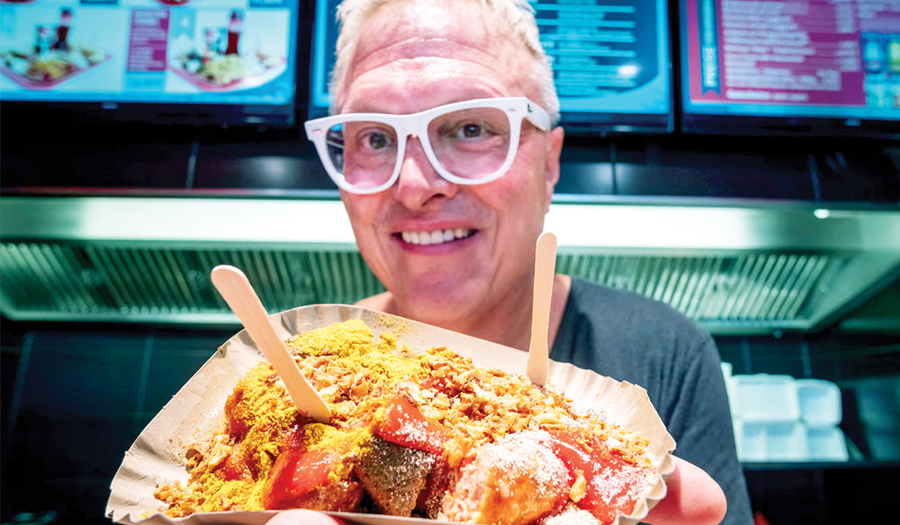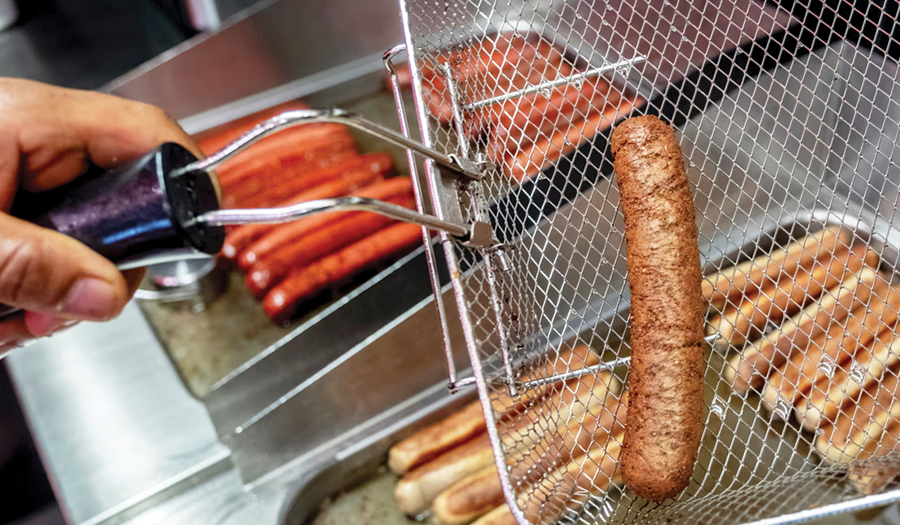By Daniel Niemann, Brittany Peterson
(AP) The veggie burger has come a long way from the dry patties of the past — just not far enough to convert legions of meat lovers. But new techniques are in development, with hopes of satisfying our enduring craving for flesh with plants.
Lars Obendorfer says he was “badly insulted” after he first began offering vegan sausage at his stands, dubbed “Best Worscht in Town.” He even found himself mediating between customers arguing on social media about what to him was just another menu item.
A German man wearing white-rimmed glasses is smiling while holding his vegan currywursts towards the camera. His name is Lars Obendorfer and he is standing at one of his sausage stands dubbed “Best Worscht in Town.”
Lars Obendorfer, owner of “Best Worscht in Town,” points to vegan currywursts at one of his sausage stands in Frankfurt, Germany.
“There was downright hostility between the meat eaters and the vegans,” he said. “And I just couldn’t understand it, and I said, ‘knock off the arguing.’”
That was six years ago.
On a plate, without dressing, are the two types of vegan sausages that are served at the “Best Worst in Town.” One is green and the other more resembles the color of meat.
A vegan curry wurst is held up to the camera in a frying tray. Other sausages are grilling in the background.
Today, his vegan currywurst — a take on the classic German fast food consisting of pork sausage with ketchup and curry powder — is no longer a novelty but a menu fixture at his 25 stands across Germany.
Of the 200,000 sausages he sells every year, 15% are plant-based.
“It actually tastes like a normal sausage,” customer Yasemin Dural said. “I even had doubts earlier that it might have been a meat sausage, but you really don’t notice it at all.”
Eating more plants and fewer animals is among the simplest, cheapest and most readily available ways for people to reduce their impact on the environment, climate scientists have long said.
According to one University of Michigan study, if half of U.S. animal-based food was replaced with plant-based substitutes by 2030, the reduction in emissions for that year would be the equivalent of taking 47.5 million vehicles off the road.
An explosion of new types of plant-based “meat” — the burgers, nuggets, sausages and other cuts that closely resemble meat but are made from soybeans and other plants — is attracting customers all over the world. Even in Germany, where cities like Hamburg and Frankfurt have given their names to iconic meat dishes, plant-based meat is becoming more popular.
But sales aren’t growing nearly fast enough in nearly enough places to reverse the global boom in meat consumption. To many customers it still is a novelty — maybe they’ll try plant-based meat or eat it once in a while, but that’s all.









